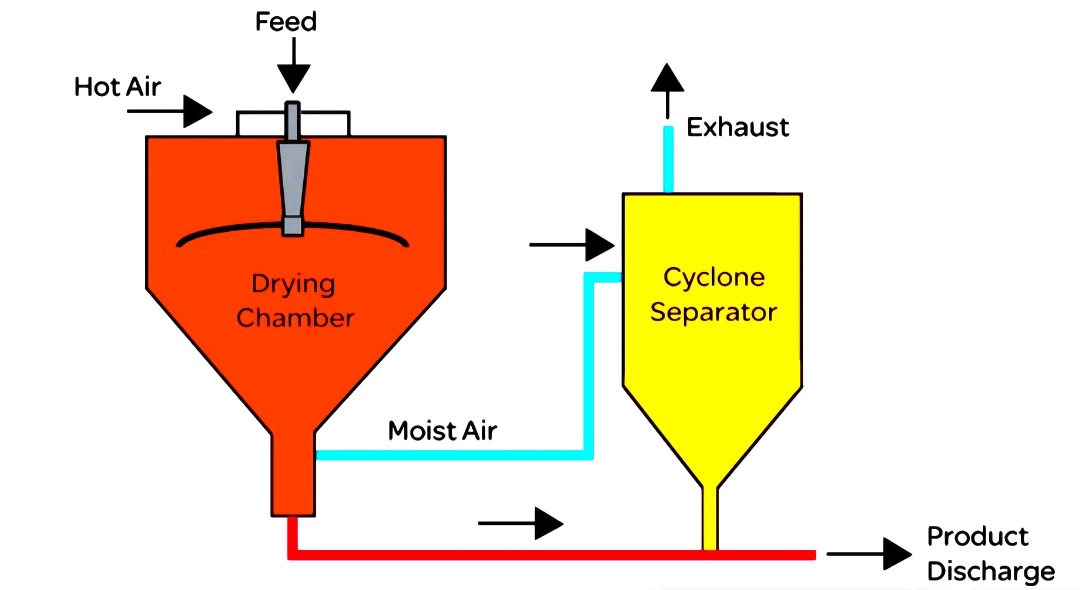Our Technologies
Spray drying transforms liquids into dry powders using hot air, widely applied in food, pharmaceutical, and chemical industries. It retains nutritional value, improves solubility, and extends shelf life, producing uniform, high-quality powders. It focuses on energy efficiency, sustainability, and precise particle control to meet modern industry needs. The process is particularly suitable for handling heat-sensitive materials, ensuring minimal thermal degradation and preserving critical active components. Advanced systems now incorporate energy recovery mechanisms, closed-loop drying, and reduced emissions, aligning with global sustainability goals. Additionally, the flexibility of spray drying allows customization of particle size, shape, and moisture content, making it indispensable for products like instant beverages, infant nutrition, and pharmaceuticals.

Spray Encapsulation
Spray encapsulation preserves active ingredients like flavors, vitamins, and probiotics by enclosing them in a protective shell, ensuring stability, controlled release, and masking unwanted tastes. Widely used in food and wellness industries, it protects against moisture, heat, and oxidation. The technology enhances the shelf life and bioavailability of sensitive compounds, making it essential for functional foods, dietary supplements, and pharmaceutical applications. By leveraging cutting-edge encapsulation materials such as biopolymers and natural gums, it provides tailored solutions that align with clean-label and health-conscious consumer trends. Ingredis employs advanced, eco-friendly techniques to deliver customized, sustainable solutions that meet market demands.

Granulation
Granulation is a key process where primary powder particles adhere to form larger, uniform granules. Widely used in industries like pharmaceuticals, it enhances material density, improves flow ability, and ensures consistent particle size, crucial for efficient tablet and capsule production on high-speed manufacturing equipment. Additionally, granulation reduces dust generation and segregation of active ingredients, ensuring uniform distribution and dosage accuracy in the final products. Various granulation techniques, such as wet granulation, dry granulation, and fluidized bed granulation, offer flexibility to handle different material properties and processing requirements. Advanced granulation methods incorporate real-time monitoring and control systems to optimize granule quality and process efficiency. In the pharmaceutical sector, granulation is essential for enhancing the compressibility and binding properties of powders, facilitating the production of high-quality, reliable dosage forms.


